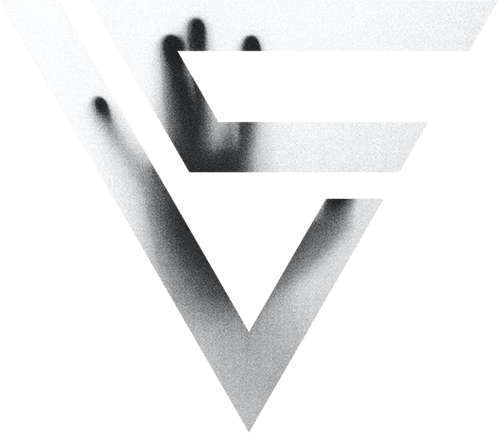Please leave your contact information and we will contact you as soon as possible.


What Are Rape Shield Laws?
Rape shield laws limit or prohibit the use of evidence of a survivor’s past sexual history in a trial to undermine their credibility. These laws protect survivors from the emotional distress of being cross-examined about their sexual history on the witness stand.
Rape shield laws protect survivors of sexual assault from further trauma and intimidation by preventing the defense from using the survivor’s previous sexual history against them in court. While some states have limited these laws to certain cases, most U.S. jurisdictions now have broad-based protections.
If you or a loved one experienced sexual assault, a sex abuse lawyer can help you seek justice. At Edwards Henderson, we understand the importance of these laws and are committed to providing legal support to survivors of sexual abuse.
Our experienced sex abuse lawyers help survivors understand and enforce their rights under rape shield laws so they can feel secure and protected as they seek justice.
Key Takeaways
- Rape shield laws prevent the defense from using a survivors sexual past against them in court
- These laws apply in most state and federal criminal and civil cases
- A sexual assault lawyer can help protect survivors’ privacy in court and pursue justice
What is Rape?
Rape refers to unlawful sexual intercourse or penetration of a person without their consent. Modern criminal law statutes have adopted a gender-neutral stance in their definition of rape.
The US Department of Justice defines rape as “the penetration, no matter how slight, of the vagina or anus with any body part or object, or oral penetration by a sex organ of another person, without the consent of the victim.”
Actual penetration, no matter how slight, is enough to constitute rape. Digital rape also constitutes as rape under many criminal statutes.
Rape has devastating physical, psychological, and emotional impacts on survivors. To protect survivors and hold perpetrators accountable, various laws have been enacted that help safeguard survivors and prevent victim-blaming and stigmatization: These are called rape shield laws.
Survivors of sexual assault might consider speaking to a compassionate sexual assault attorney for help navigating the legal system and pursuing justice. A sexual assault lawyer can provide legal advice, assist with filing a police report, represent clients in court, and help survivors recover the justice they deserve.
What Are Rape Shield Laws?
Rape shield laws limit or prohibit the use of evidence of a survivor’s past sexual history in a trial to undermine their credibility. These laws protect survivors from the emotional distress of being cross-examined about their sexual history on the witness stand. Such cross-examinations can be a particularly difficult and humiliating experience for survivors of sexual assault. This type of intense scrutiny may discourage them from coming forward to pursue charges.
Rape shield laws exclude any evidence that does not pertain directly to the sexual assault case at hand. Evidence regarding the survivor’s reputation or character is not admissible. These laws also exclude evidence of past sexual behavior unrelated to the rape accusation at hand.
Rule 412, Federal Rule of Evidence, recognizes that a survivor’s sexual behavior or sexual predisposition has little to no bearing on whether they consented to have sex with the abuser. Rape shield laws apply to both federal and state criminal and civil rape cases. This means survivors cannot be discredited based on their past “unchastity” or sexual history.
What Do Rape Shield Laws Cover?
The purpose of rape shield laws is to block the defense’s ability to attack the survivor’s reputation or use evidence of their specific sexual conduct in court. This helps prevent the survivor from being unfairly humiliated, embarrassed, or ostracized by the defense.
These laws limit the admissibility of evidence of prior sexual relationships or specific sexual conduct by the survivor. The goal is to prevent the defense from using this information to suggest the victim is promiscuous or somehow deserving of being raped.
Rape shield laws also require a special showing of proof before any evidence of the survivor’s sexual conduct becomes admissible in court. This requirement ensures the defense cannot simply make accusations against the survivor without first providing evidence that the conduct is relevant to the case at hand.
In addition, rape shield laws limit the extent a survivor’s reputation may be attacked. For instance, a survivor’s sexual orientation, profession, or religious beliefs cannot be used against them in court. These laws are intended to ensure the trial remains focused on the issue of whether the defendant committed the alleged rape.
Rape Shield Laws: Limitations
Despite the importance of rape shield laws, some limitations exist. One high-profile case demonstrating these limitations is The People v. Kobe Bryant. In this case, the judge allowed the admission of evidence related to the complainant’s sexual activity with someone other than the defendant.
Under Rule 412, a complainant’s past sexual activity may be admissible as evidence if it is relevant to prove consent, source of semen, pregnancy, injury, disease, other physical evidence, or if the exclusion of evidence violates the defendants’ constitutional rights. While this may be frustrating for survivors, these exceptions are intended to ensure that defendants receive a fair trial.
In New York, rape shield laws are codified in Criminal Procedure Law §§ 60.42 and 60.43. These laws help prevent the introduction of evidence regarding a complainant’s sexual history in a prosecution for a sex offense. Some exceptions to this rule exist.
Evidence of a complainant’s sexual history is admissible if it:
- Shows the accused and the complainant engaged in sexual conduct in prior specific instances
- Proves the complainant was convicted of a prostitution offense within the three previous years
- Rebuts evidence introduced by the prosecutor of the complainant’s lack of sexual conduct during a specific time period
- Refutes evidence by the prosecutor that the complainant’s disease or pregnancy was caused by the defendant or that the defendant was the source of biological evidence recovered
- Is relevant and admissible in the interests of justice, as pre-determined by the court
Despite these limitations, rape shield laws encourage sexual assault survivors to come forward by sparing them from specific questions by defense attorneys. Reporting sexual assault or rape can help a person move forward, prevent others from being assaulted by similar parties, and help obtain the necessary resources to heal.
What is the Violence Against Women Act?
The Violence Against Women Act (VAWA) was first passed in 1994, authored by then-Senator Joseph R. Biden. Since then, the VAWA has been up for renewal every five years, with each reauthorization building on existing protections and programs.
The VAWA Reauthorization Act of 2022 provides survivors, local programs, and communities with resources for housing, legal assistance, alternatives to criminal responses, and prevention programming.
Notably, the law includes new economic justice provisions and bolsters access for survivors of all genders by strengthening non-discrimination laws and creating an LGBTQ services program.
In addition, the law restores tribal jurisdiction, improves existing housing protections, increases emergency and short-term housing access, and creates dedicated investments in culturally-specific service providers.
Overall, the VAWA represents a crucial effort to provide support and resources for survivors of violence, while also working to prevent future incidents of sexual assault and intimate partner violence.
Rape Shield Reform Bill
In 2019, the Rape Shield Reform Bill was introduced in New York State to remove from admissibility evidence that proves or tends to prove that a complainant was convicted of a prostitution offense within three years prior to the sex offense subject of the prosecution.
According to the New York Civil Liberties Union (NYCLU), “Categorically denying sex workers the protection of the ‘rape shield law’ is an unconstitutional infringement on the right to sexual privacy, promotes the idea that convictions for prostitution are somehow relevant to the credibility of the complainant, and serves to further institutionalizes the popular misconception that sex workers cannot be raped, ignoring the fact that they are actually at greater risk of sexual assault than the general population.”
The Rape Shield Reform Bill aims to restore sex workers’ constitutional right to privacy and allows survivors of sexual assault to come forward to law enforcement without fear of discrimination and humiliation by the criminal justice system.
Speak to a Compassionate Sexual Assault Attorney
If you or someone you know has experienced sexual assault, consider seeking legal help as soon as possible. At Edwards Henderson, we understand the sensitive nature of these cases. Our experienced attorneys are dedicated to helping survivors seek justice while protecting their privacy in court.
Our attorneys assist with navigating the legal system and provide compassionate support throughout the process. Contact us today for a free legal consultation and find out how we can help you navigate the legal process and fight for your rights.
If you or a loved one are looking for resources on sexual assault, including crisis support, dating and domestic violence, street harassment, human trafficking, or other related matters, contact the sexual assault hotline.
Article Sources
-
U.S. Department of Justice
https://tinyurl.com/3374mtzj -
Britannica
https://tinyurl.com/ycy3v7au -
NY State Senate
https://tinyurl.com/339c4j9r -
Law.com
https://tinyurl.com/yxzvh55k -
National Network to End Domestic Violence
https://nnedv.org/content/violence-against-women-act/ -
U.S. Department of the Interior Indian Affairs
https://www.bia.gov/CFRCourts/tribal-justice-support-directorate -
NYCLU
https://tinyurl.com/2rafvcyp
Listen To An Excerpt
Please leave your contact Information and we will contact you as soon as possoble.
-
What Is a Rape Kit?
By Edwards Henderson March 17, 2025 -
Sexually Abused by a Teacher: Your Pain Matters and so Does Your Justice
By Edwards Henderson March 7, 2025 -
What Is Aggravated Sexual Abuse?
By Edwards Henderson February 28, 2025 -
Are Young Teens More Likely to Be Sex Trafficked Online?
By Edwards Henderson February 21, 2025 -
What Is the Difference Between Rape and Molestation?
By Edwards Henderson January 14, 2025 -
Child Grooming: Identifying Child Predator Warning Signs
By Edwards Henderson January 11, 2025 -
P Diddy Sex Trafficking | Allegations + Tips For Survivors
By Edwards Henderson December 18, 2024 -
Can I Be Sued for Defamation for Accusing Someone of a Sex Crime?
By Edwards Henderson December 13, 2024 -
Therapist Sexual Abuse
By Edwards Henderson December 10, 2024 -
Sexual Abuse in Sports
By Edwards Henderson December 4, 2024 -
Civil Sexual Assault Lawsuit: What to Expect?
By Edwards Henderson November 27, 2024 -
What is Sexual Battery?
By Edwards Henderson November 21, 2024 -
Filing a Lawsuit Against an Abuser’s Estate
By Edwards Henderson November 4, 2024 -
P Diddy Lawsuits | Shedding Light On Abuse Allegations
By Edwards Henderson October 24, 2024 -
Edwards Henderson Files Class Action Lawsuit Against Abercrombie & Fitch and Former CEO Michael S. Jeffries Over Sex Abuse and Trafficking Allegations
By Edwards Henderson September 27, 2024 -
How to Help a Rape Victim
By Edwards Henderson August 8, 2024 -
What Are Date Rape Drugs?
By Edwards Henderson August 2, 2024 -
Sexual Abuse and Sexual Assault Hotlines
By Edwards Henderson June 17, 2024 -
What is Sextortion?
By Edwards Henderson June 10, 2024 -
What Is the Freeze Response?
By Edwards Henderson June 6, 2024 -
Signs of Sexual Abuse in Teens
By Edwards Henderson June 6, 2024 -
Wilderness Therapy Abuse
By Edwards Henderson May 2, 2024 -
What is Inappropriate Touching By a Doctor?
By Edwards Henderson May 2, 2024 -
Bikram Yoga: Sexual Assault + Rape Allegations
By Edwards Henderson April 9, 2024 -
Repressed Sexual Abuse Signs
By Edwards Henderson April 9, 2024 -
What is Sexual Consent?
By Edwards Henderson April 4, 2024 -
What is Victim Blaming?
By Edwards Henderson April 4, 2024 -
I Was Abused By A Priest: What Are My Legal Options?
By Edwards Henderson November 30, 2023 -
Bill Cosby Sexual Assault: How the Lookback Window Has Helped Survivors
By Edwards Henderson October 19, 2023 -
Sexual Violence Against Racial and Ethnic Minorities
By Edwards Henderson October 4, 2023 -
Male Sexual Assault: Resources and Legal Information for Survivors
By Edwards Henderson September 23, 2023 -
How Does Breaking Code Silence Help Institutional Child Abuse Survivors?
By Edwards Henderson September 1, 2023 -
Date Rape Drug Symptoms
By Edwards Henderson August 3, 2023 -
Andrew Tate Human Trafficking
By Edwards Henderson August 3, 2023 -
Ghislaine Maxwell Sentenced to 20 Years in Prison for Role in Epstein Sex Trafficking Conspiracy
By Edwards Henderson June 27, 2023 -
Flashbacks of Sexual Abuse | How to Cope And Heal
By Edwards Henderson June 8, 2023 -
Was I Raped?
By Edwards Henderson February 7, 2023 -
Attorney Brad Edwards Featured in ‘Ghislaine Maxwell: Filthy Rich’
By Edwards Henderson November 29, 2022 -
PTSD Resources for Abuse Survivors
By Edwards Henderson November 23, 2022 -
LGBTQ Sexual Assault: Statistics, Legal Options and Resources
By Edwards Henderson November 21, 2022 -
The Troubled Teen Industry and Sexual Abuse
By Edwards Henderson November 8, 2022 -
Human Trafficking Lawsuits
By Edwards Henderson September 27, 2022 -
Recognizing Adult Symptoms of Childhood Sexual Abuse
By Edwards Henderson August 26, 2022 -
New York Adult Survivors Act: Frequently Asked Questions
By Edwards Henderson August 23, 2022 -
Sexual Abuse and Addiction: Unraveling a Complex Relationship
By Edwards Henderson August 19, 2022 -
Southern Baptist Convention Sexual Abuse Reckoning
By Edwards Henderson August 17, 2022 -
What is the Adult Survivors Act?
By Edwards Henderson August 3, 2022 -
Exploring the Link Between Sexual Abuse and Eating Disorders
By Edwards Henderson July 20, 2022 -
U.S. Merchant Marine Academy Cadets Allege Culture of Sexual Abuse
By Edwards Henderson June 17, 2022 -
Sexual Assault in Hospitals: How Common Is It?
By Edwards Henderson June 9, 2022 -
New York Adult Survivors Act Opens A Lookback Window For Expired Sexual Abuse Claims
By Edwards Henderson May 24, 2022 -
Child Sex Abuse: Warning Signs and How To Report It
By Edwards Henderson May 18, 2022 -
Hallandale Beach Abuser Arrested After Years of Sexual Assault
By Edwards Henderson May 17, 2022 -
Broward County Cheer Coach Arrested for Enticement of Minor
By Edwards Henderson May 6, 2022 -
What is Assembly Bill 218: The CA Child Victims Act?
By Shana Bosley April 8, 2022 -
Statute of Limitations and Look-Back Windows for Sexual Abuse Cases
By Shana Bosley April 8, 2022 -
Can You Proceed Anonymously in a Sexual Abuse Case?
By Shana Bosley April 8, 2022 -
Holding Businesses Liable for an Employee’s Sexual Misconduct
By Shana Bosley April 8, 2022 -
Am I Entitled to Compensation after Being Sexually Assaulted?
By Shana Bosley April 8, 2022 -
The History of the Epstein Victims’ Compensation Program
By Edwards Henderson March 7, 2022
-
$4.3 Million
Verdict on Behalf of Rape Victim
-
$71 Million
Verdict on Behalf of Rape Victim

